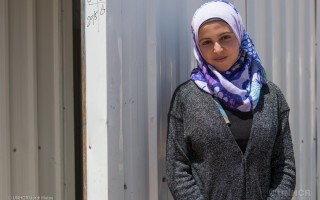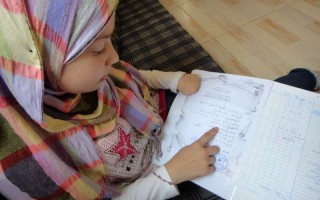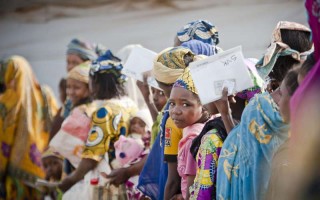Aisha Slaybi was determined that nothing, not bullets, bombs or war, would force her to take her family away from their home in Aleppo until her teenage daughter had graduated from high school.
It was May 30, 2014, and in 10 days’ time her daughter, Fatima Alzahraa Alhamam, would have completed eight exams and obtained her school diploma. Only then, would Aisha and her four children would flee to safety.
Her husband, who was arrested twice, had fled to Turkey the year before and they wanted to join him.
The day was hot, a dull heat typical of an Aleppo summer. Aisha, 35, and her 17-year-old son were working in the family café when it was hit by a bomb. Seriously injured, both were taken to a nearby hospital. She begged her sister not to tell Fatima.
“She was my everything. She was my friend and my sister.”
The next day, Aisha died, but not before she was told that Fatima had completed her physics exam.
“They told my mother that I had taken my exam and did well and she smiled,” Fatima said. “She was my everything. She was my friend and my sister.”
Fatima, who scored 95 per cent in that physics paper, went on to complete her exams in the days following her mother’s death and earn her high school diploma. Only then, the four siblings started their trek to Turkey. They now live with their father in the southeastern Turkish city of Gaziantep.
“I believe suffering brings creation,” Fatima said. “This could have its positive side.”
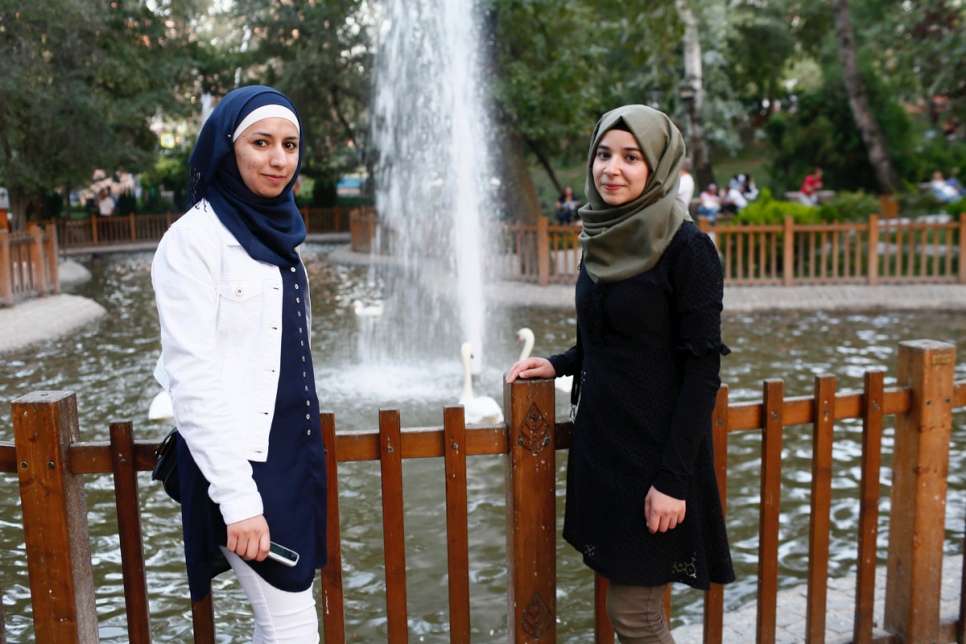
Fatima (left) and and fellow student Rawan take a moment to relax in the park. Fatima is hoping to study for a masters and a PhD, and plans to returns to Syria when the war is over. © UNHCR/Ali Unal
Two years on, Fatima, now 20, is studying civil engineering at Gaziantep University. She speaks English and fluent Turkish. She is soft-spoken but there is nothing shy about her. She is eager to share her passion for studying and communicates with an extensive network of friends in several countries with whom she converses through email and smartphone apps.
Her plans include studying for a masters and a PhD and returning to Syria when the war is over.
Fatima’s father, a lawyer, understood her thirst for knowledge and guided her to prepare and take the internationally recognized Scholastic Aptitude Test (SAT), an essential entrance qualification for foreign students. She taught herself Turkish by ear, on the street, from her friends and by listening to hundreds of hours of Turkish songs.
Her Turkish neighbour, a nurse, became a surrogate mother, and her daughter, now Fatima’s best friend, helped her write her university motivation letter in Turkish. She applied to 44 universities in Turkey. She received 38 rejections and six acceptances.
“I believe suffering brings creation.”
However, the odds faced by Fatima and other Syrian students are daunting. More than 2.7 million Syrian refugees live in Turkey, according to the Turkish authorities, and their road to higher education is hard.
Although the Turkish government waives tuition fees for Syrian refugees applying to state universities, only 2.2 per cent of young Syrian refugees have enrolled, struggling with the language and juggling one or more jobs to make ends meet. A new report from UNHCR has found that opportunities to learn diminish greatly when children are forced to flee their homes and as they grow older.
In 2015, the government subsidized the tuition costs of a number of Syrian refugees in Turkish Universities.
This year, Fatima is one of 70 Syrian refugees in Turkey to win a German-funded and UNHCR-implemented scholarship from the Albert Einstein German Academic Refugee Initiative (DAFI), which will provide her with a monthly allowance while she is at university.
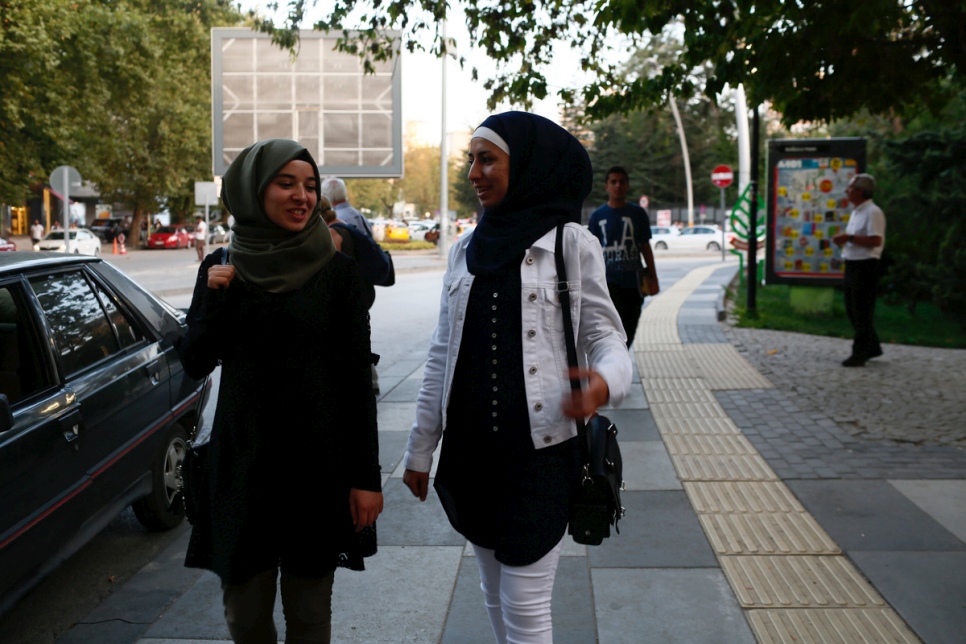
Fatima (right) and her friend Rawan, both 19 from Syria, are photographed on the streets of Ankara after meeting the UN High Commissioner for Refugees, Filippo Grandi. © UNHCR/Ali Unal
The competition was tough. In 2015, 5,800 young Syrians applied. With the award of 700 additional fellowship places this year, selected in a joint process by UNHCR and the Presidency for Turks Abroad and Related Communities (YTB), Turkey will have the largest number of DAFI students.
Fatima keeps a photo of her mother on her phone. Dressed in a long grey coat, Aisha is sitting in a law lecture at the University of Aleppo. She sits ramrod straight, leaning forward slightly.
“Whatever chance I see, I try,” Fatima said. “My mother was my inspiration. She married my father at 15 and had four children and only then returned to finish high school and enter the university to study law. But the war started.”
By: Donatella Lorch in Ankara, Turkey



